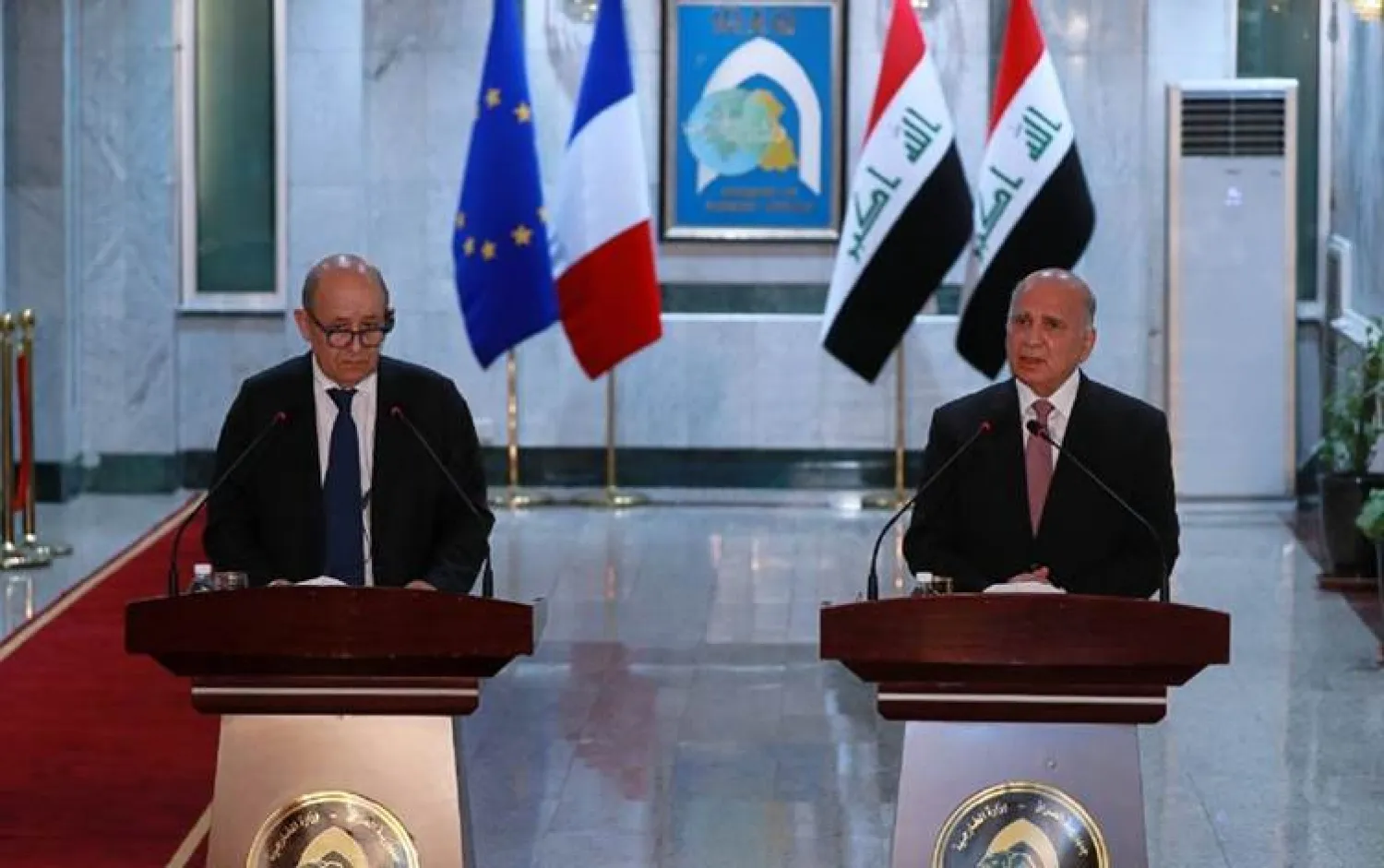Iraq received on Thursday Arab and French support one day after the killing of Iraqi border guards by Turkish airstrikes.
France condemned the Turkish bombing of the Iraqi border guards in the "SedaKan" area in the Kurdistan region, confirming its keenness on fully respecting the sovereignty of Iraq.
"France condemns this dangerous development (the Turkish bombing of the Iraqi borders) and calls for the truth to be revealed," said the French Foreign Ministry Spokeswoman, Anies von der Molle, in a press release.
Meanwhile, Saudi Minister of Foreign Affairs Prince Faisal bin Farhan bin Abdullah received a phone call from his Iraqi counterpart, Fuad Muhammed Hussein and he offered his condolences and sympathy for the Iraqi military martyrs.
In this context, the two ministers affirmed their rejection of such violations against the security and stability of Arab countries.
Hussein had also contacted the Secretary-General of the Arab League, Ahmed Aboul Gheit, and his counterparts, Sameh Shoukry, the Egyptian Foreign Minister, Ayman Safadi, the Jordanian Foreign Minister and the Kuwaiti Foreign Minister Sheikh Ahmed Nasser Al-Muhammad Al-Sabah.
A statement by the Iraqi Foreign Ministry said those contacts were made to inform the Arab brothers about details of the attack, to emphasize the importance of concerted Arab efforts facing these dangerous developments in the security situation with neighboring Turkey, to come up with a unified position that keeps Turkey from repeating such violations, and to withdraw their invading forces from Iraqi territory.
“The brothers affirmed their countries' full support for the security and sovereignty of Iraq, and condemned the Turkish attacks, calling for the immediate cessation of any Turkish military operations on Iraqi lands,” the statement said.
For its part, Ankara said Thursday it "will take the necessary measures to protect the security of its borders, in the event that Iraq continues to ignore the presence of the terrorist PKK members on its territory."
A spokesman for the Joint Operations, Tahsin Al-Khafaji, described the recent Turkish attack on Sedkan in the Kurdistan region as a dangerous encroachment and escalation by the Turkish side, indicating that “it was carried out individually without informing Iraq despite the existence of several channels and contacts that link us with them both in past and even in the present. "
Khafaji told the Iraqi news agency NINA that what happened is a "sinful attack on our national sovereignty, and a dangerous escalation by the Turkish side, which claims to pursue the PKK fighters."
On Wednesday, head of the Iraqi-Turkish Parliamentary Friendship Committee, Zafer Al-Ani, affirmed, "Ankara's persistence in the aggression will make it lose all its friends and it must solve its problems far from Iraq."
He called on the government to pursue all possible political means to preserve the sovereignty of Iraq and the lives of its citizens.
"From the position of my responsibility as head of the Iraqi-Turkish Parliamentary Friendship Committee, I reiterate that Ankara's persistence in attacking Iraq will make it lose all its friends and no one will be able to justify its violations or turn a blind eye, as long as the matter concerns the sovereignty of Iraq and respect for its borders,” he said.









